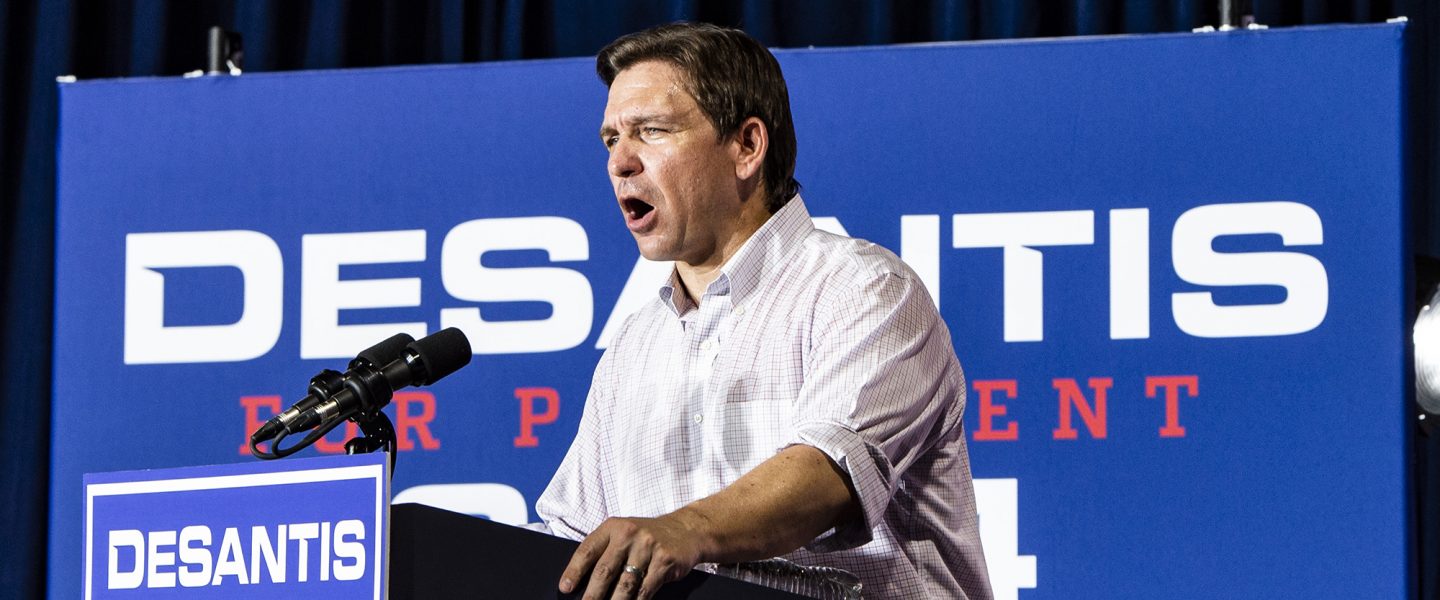Ron DeSantis Seems to Think Slavery Is Something That Belongs on a Resume
To help out Gov. Ron DeSantis, as well as the Florida educators who have to sell his nonsense to their students, we've put together a list of ways to spin atrocities into valuable job experience.
|
Listen To This Story
|
The response to Florida’s new guidelines for teaching Black American history was swift and scathing. One part especially, which suggested that students should be taught that “slaves developed skills which, in some instances, could be applied for their personal benefit,” drew criticism and ridicule alike.
Some of it came from the highest level.
Speaking at an event in the Sunshine State on Friday, Vice President Kamala Harris blasted extremist Florida officials who ban books to prevent children “from learning our true history.”
And the same people, she added, then turn around and promote a revisionist version of history.
“Just yesterday, in the state of Florida, they decided middle school students will be taught that enslaved people benefited from slavery,” Harris said. “They insult us in an attempt to gaslight us, and we will not stand for it.”
Florida Gov. Ron DeSantis (R) saw things a bit differently when he was asked about the guidelines.
Calling slaves “folks,” the man who wants to be elected president next year suggested that some enslaved people were able to parlay their blacksmithing skills into a career post-slavery.

Photo credit: Marion Post Wolcott / LOC
And maybe DeSantis has a point. Sure, the apprenticeship sucked and the hours were terrible, but those slaves were probably pretty thrilled about having developed those skills.
But why only single out blacksmithing?
Someone who is determined to look, and DeSantis and Florida education officials do seem determined, must surely find all kinds of skills that slaves developed while picking cotton on plantations, getting raped, being separated from their families, and experiencing brutal punishment for minor infractions.
To help out the governor, as well as Florida educators who have to sell this nonsense to their students, we put together a list of ways to spin atrocities into marketable skills.
For example, the forceful separation of families sounds terrible. But, if you say that plantation owners “helped individuals work independently,” now that’s a skill the slaves can apply to jobs with.
Conversely, in order to discourage runaways, some owners would punish those slaves who remained behind. On its face, that’s incredibly cruel. But couldn’t it also be called a team-building exercise? Certainly, as a result, “being a team player” is something freed slaves could put on their résumés.
And what about the hundreds of thousands (by some estimates) of Black girls and women who were raped? There was a great need of sex workers during the Wild West era that immediately followed the Civil War. Maybe some of those women could put their traumatizing and degrading experiences to use in the saloons west of the Mississippi.
Above all, employers want to hire people who are able to overcome adversity. And, really, is there a greater example of a people overcoming adversity than the millions of Africans who were ripped away from their homelands, shoehorned into rickety ships, sold, raped, whipped, beaten, tortured, and dehumanized?
Heck, as these new guidelines show, the victimization of their ancestors continues to this day. Makes one wonder why African Americans still have a much tougher time getting hired.
Editor’s Note: Obviously, the last thing we want to do is make light of the unspeakably miserable experiences of slaves in the US. By writing this, we merely wanted to point out how outrageous it is that this is precisely what Florida educators are doing with their ridiculous guidelines.




